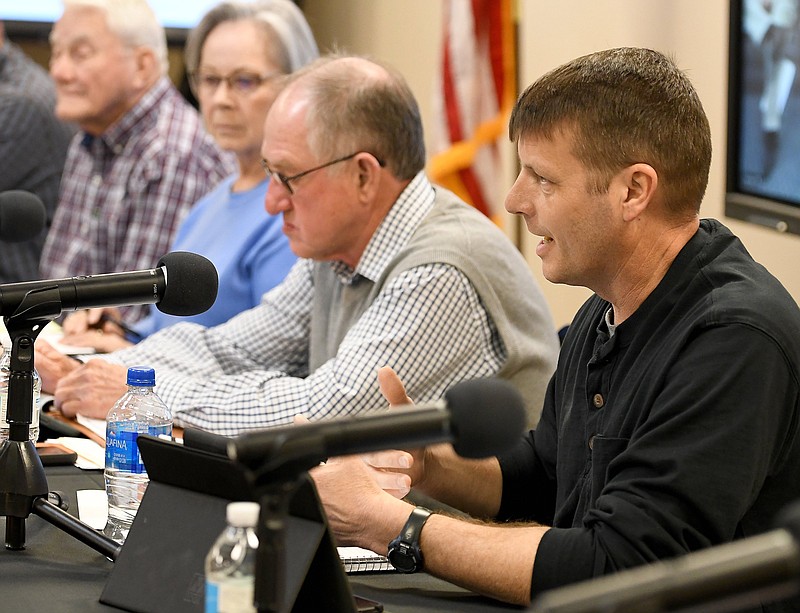The use of certain language, specifically phrases related to God and condemnation, drew consternation from the McMinn County Board of Education last month when members voted unanimously to remove Art Spiegelman's award-winning graphic novel "Maus" from its curriculum.
The board cited the use of profane language and nudity in the Pulitzer Prize-winning book as reasons for its decision.
In most Christian communities, and especially among more conservative Christians, using God's name in condemnation is considered religious profanity.
Such phrases violate the biblical mandate to not use God's name in vain, a violation of one of the Ten Commandments given to Moses on Mount Sinai. In the Bible, the directive comes from Exodus 20:7, which reads, "Thou shalt not take the name of the Lord thy God in vain; for the Lord will not hold him guiltless that taketh his name in vain." That can mean using the language of God in instances that are meaningless or trivial.
The idea of damnation also has serious eternal implications in Christianity. Calling upon God to damn someone or something is believed to trivialize the deeply important work of God and moving the decision-making authority of eternal life to the human rather than God.
Christians believe they will have to account for their actions on Earth, including their language, when they die. Using God's name in anger or with an attitude that is not respectful can be categorized as sin.
(READ MORE: Author of 'Maus' pushes back after McMinn County bans book on Holocaust)
Removing items such as a book from a library because they violate a group's morality raises questions about whose morality is being protected and whose is not, said Jack Seitz, assistant professor of history at Tennessee Wesleyan University.
Seitz, who teaches a class on the Holocaust, said the public is always navigating and negotiating which things are morally acceptable.
"We have a conversation about them, and we try and arrive at some mutually agreed upon policy that respects the fact that there's a diversity of opinion on this and that we're all kind of compromising, that we're all giving, maybe giving something up," Seitz said. "But that's kind of part of the price we pay for living in a society, especially a pluralistic society."
Teaching a topic like the Holocaust requires teaching information that is heavy and painful, Seitz said. Educators constantly have to balance conveying the impact and weight of a situation - in showing a picture from a concentration camp, for example - against whether the material will be too offensive or shocking and cause an adverse effect on students.
(READ MORE: McMinn County school board may have violated Tennessee law on records request)
On Monday evening, in a webinar hosted by the Jewish Federation of Greater Chattanooga and other partners, Spiegelman said he understood why people could be turned off by the language included in the book but said it was necessary given the topic of the Holocaust. Many of the words in question are uttered on TV, Spiegelman said, and focusing on them as problematic is like seeing a loved one being strangled by an evil killer and only remarking about the dirt in the killer's fingernails.
Parents are using the guise of "protection" to ban books when they should be exercising empathy and intelligence, Spiegelman said.
Contact Wyatt Massey at wmassey@timesfreepress.com or 423-757-6249. Follow him on Twitter @news4mass.

